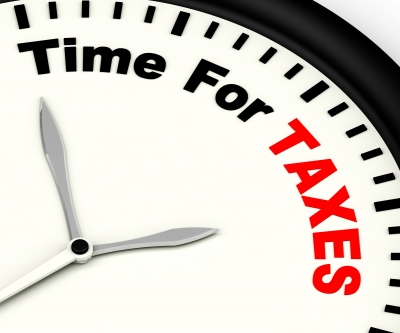There are different types of corporations for tax purposes. As a business owner, you have the responsibility to decide which corporation your business model fits into before the end of the tax year. The type of corporation decides whether or not your corporation is entitled to certain deductions or rates.
Canadian-controlled private corporation (CCPC)
A CCPC corporation is required to meet the following requirements by the end of the tax year.
- This kind of corporation has to be a private one.
- The corporation has to be a resident of Canada or must have been a resident from June 18, 1971, to the end of the tax year.
- The corporation must be incorporated into Canada.
- The corporation should not be controlled by a non-resident, directly or indirectly.
- The corporation should not be controlled directly or indirectly by one or more public corporations, with the exception of a prescribed venture capital corporation as the Regulation 6700 of the the Income Tax Regulations, allow.
- The corporation should not be controlled by a Canadian resident corporation which is listed in any stock exchange outside of Canada.
- No direct or indirect control should exist on the corporation by any combination of persons mentioned in the above conditions.
- If all of the corporation shares are owned by a non-resident person, by a public corporation (other than a prescribed venture capital corporation), or if its shares are owned by a corporation that has a class of shares listed on a designated stock exchange, were owned by one person, then, that person should not own sufficient shares to control the corporation, and
- The corporation should have none of its shares related to capital stock listed on a designated stock exchange.
Other private corporation
For a corporation to be considered as other private corporation, it is supposed to meet the following requirements by the end of the tax year:
- The corporation has to be a resident of Canada.
- The corporation should not be a public corporation.
- The corporation should not be controlled by one or more public corporations, with the exception of venture capital corporation as defined in the the Regulation 6700 of the income tax regulations.
- The corporation should not be controlled by a federal crown corporation.
- The corporation should not be in any way controlled by any combination of corporations described in two of the previous conditions.
Public corporation
For your corporation to be deemed a public corporation, it has to be a resident of Canada and has to meet the following requirements by the end of the tax year.
- or
- The corporation has been elected, or the corporation was designated as a public corporation by minister of National Revenue and the corporation complies with the conditions that have been prescribed under Regulation 4800(1) of the Income Tax Regulations.
- If a public corporation has complied with certain conditions prescribed under Regulation 4800(2) to not be a public corporation, the minister of National Revenue can designate it to not be a public corporation.
Corporation controlled by public corporation
Corporations that are a Canadian subsidiary of a public corporation will not qualify as a public corporation when determining the type of corporation, while completing your T2 Corporation Income Tax Return.
Other corporation
Other corporations include corporations that are:
- Corporations that are not
- The corporation should have a class of shares that is listed on a designated Canadian stock exchange,
- Canadian controlled private corporation (CCPC)Corporation that are not controlled by a public corporation.
- Corporations that are not a private corporation.
- Corporations that are not a public corporation, or
Examples of other corporations usually include credit unions, cooperative corporations, general insurers and Crown corporations.
To get a more detailed idea regarding what type of corporation your corporation falls under, get in touch with Prowse Chowne.

